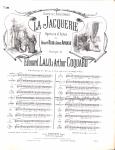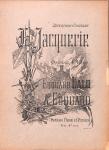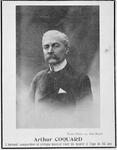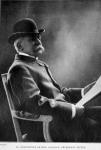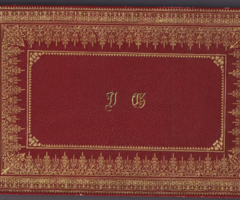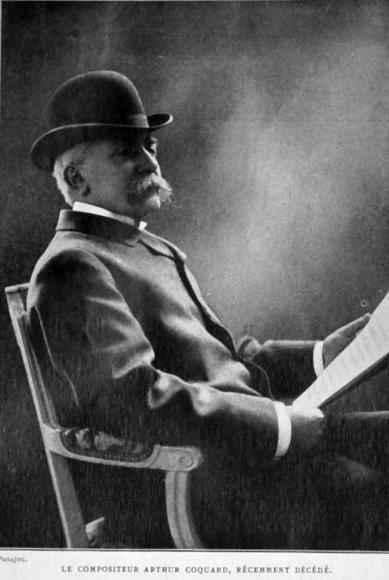
Arthur COQUARD
1846 - 1910
Composer, Journalist
Initially destined for a career in the French Civil Service – which he duly began after graduating in law – Arthur Coquard rediscovered a passion for music first ignited at the Jesuit College of the Immaculate Conception: he was a fellow pupil of Henri Duparc there, and received instruction in harmony from César Franck. In the early 1870s, without ever learning to play an instrument, he decided to devote himself to composition. He was thirty when Le Chant des épées, a ballade for voice and orchestra, was performed at the Concerts Colonne. To make ends meet, he became a music critic and also worked at the Bibliothèque Nationale, then the Institut des Jeunes Aveugles. Although his ambition was to write a large number of operas, few actually saw the light of day or progressed beyond manuscript stage. He explored various unofficial channels to earn his musical spurs. He used an amateur choral society (Guillot de Sainbris) to stage first performances of two operas: Cassandre (1881) and Pompée (1888). He also turned to Angers (for the first performance of L’Épée du roi) and Lyons (Jahel, 1900). He completed La Jacquerie by Édouard Lalo (1895), then Ghiselle by César Franck (1896) before finally achieving success with La Troupe Jolicœur (premiered at the Opéra-Comique in 1902). Coquard was not only the first biographer of César Franck (1890) and the author of texts on the history of music and a biography of Berlioz (1909), but also an acclaimed composer of songs and symphonic works (Ossian, Légendes for violin and orchestra, or En Norvège).
Scientific publications
Publication
Édouard Lalo / Arthur Coquard. La Jacquerie
Articles
La Jacquerie: an overview
Articles
La Jacquerie on the stage
Publication

